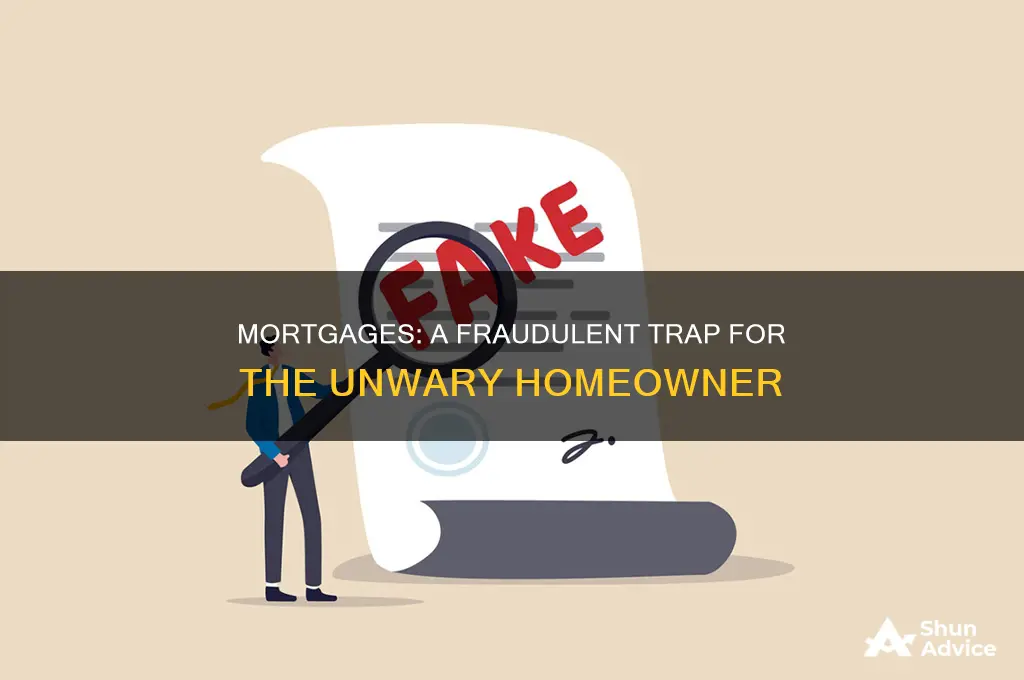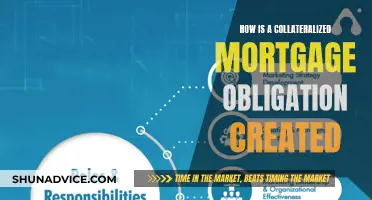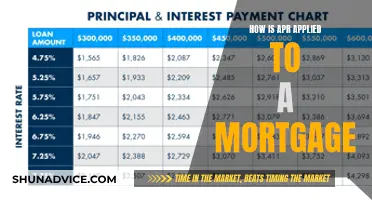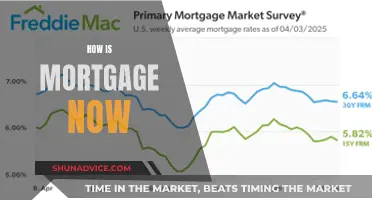
Mortgage fraud is a serious legal offence that can have severe consequences, including federal criminal charges, hefty fines, and prison sentences. It occurs when individuals or organisations deliberately misrepresent or omit information to secure a mortgage loan or profit from a property transaction. This can involve falsifying income, employment, or asset information, as well as inflating property appraisals, to obtain a larger loan amount or more favourable loan terms. Fraudulent schemes may also involve straw buyers, air loans, double sales, and property flipping, where properties are quickly resold at artificially inflated prices. Mortgage fraud targets homeowners, often through misleading terms, deceptive loan applications, or false promises of financial assistance. It is essential to stay vigilant, verify the authenticity of communications, and work with accredited lenders to protect oneself from mortgage fraud.
| Characteristics | Values |
|---|---|
| Definition | The deliberate act of lying or omitting information used by a mortgage underwriter or lender to fund, purchase or insure a mortgage loan |
| Types | Fraud for housing, fraud for profit, occupancy fraud, income fraud, employment fraud, non-arm's length transaction, illegal property flipping, straw purchases, house flipping schemes, equity skims, inflated appraisals, foreclosure scams, loan modification scams, predatory lending, asset rental fraud, double sale, Ponzi, investment club or chunking schemes, builder bailout, buy-and-bail |
| Penalties | Up to 30 years in federal prison and up to $1 million in fines |
| Prevention | Stay vigilant, verify the authenticity of communications from unknown sources, work with trusted lenders, never pay upfront fees, get everything in writing, seek US Department of Housing and Urban Development (HUD)-approved counselling |
| Reporting | Determine the relevant federal, state and local agencies, file a complaint with the Internet Crime Complaint Center (IC3), a division of the FBI, visit ReportFraud.ftc.gov, call the FTC at 1-877-382-4357, notify your financial institution |

Fraud for profit
Loan origination fraud, a common type of fraud for profit, occurs when false information is provided during the application process to secure a mortgage. This can involve inflated borrower incomes, falsified employment details, or forged credit histories. Mortgage brokers or loan officers may collude with borrowers or act independently to ensure that loans are approved, even when borrowers do not qualify. Another scheme involves mortgage companies submitting false documentation or certification as to the value of pooled mortgages or falsifying that the loans were FHA-insured.
Other examples of fraud for profit include embezzlement, where administrators and participants in HUD programs may take cash or assets for their personal use, and equity skimming, where investors use a straw buyer to purchase property and obtain a mortgage in their name. After closing, the straw buyer passes the property to the investor, who then rents it out without making any mortgage payments.
Land Contracts: Different from Mortgages, But How?
You may want to see also

Fraud for housing
Mortgage fraud, or fraud for housing, is a criminal offense that involves deceit or misrepresentation in the origination or funding of a mortgage loan. It targets individuals looking for home loans or financial assistance. This type of fraud can be committed by both borrowers and industry professionals, such as appraisers, brokers, and loan originators.
Another common type of fraud for housing is occupancy fraud, which occurs when the borrower misrepresents whether a property will be occupied or not. The owner may live elsewhere but will claim that the home will be owner-occupied to obtain favourable bank status, even though the property will actually be vacant. This allows the borrower to qualify for lower mortgage rates, lower out-of-pocket purchase costs, and higher loan-to-value ratios.
Straw buyer scams are also a form of fraud for housing. In this scenario, the straw buyer acts on behalf of the true purchaser, misrepresenting the nature of the transaction. The real buyer might have bad credit or be trying to conceal involvement in illegal activities that may disqualify them from getting a mortgage. Once the transaction is completed, the straw buyer transfers the property title to the real buyer. Funds coming from an entity or institution rather than an individual or a lack of interaction between the lender and the buyer can be indicators of a straw buyer scam.
Understanding Your Monthly Mortgage Payment Calculation
You may want to see also

Occupancy fraud
The penalties for occupancy fraud can vary. Lenders may recall the loan or foreclose on the property. Offenders may be investigated by the FBI, and if multiple instances of occupancy fraud are discovered, they can be fined thousands of dollars. Committing occupancy fraud may also make it difficult to obtain mortgages on new properties in the future.
Creating Collateralized Mortgage Obligations: A Step-by-Step Guide
You may want to see also

Foreclosure scams
Foreclosure rescue and mortgage modification scams are a growing problem that could cost you thousands of dollars or even your home. Scammers often make promises that they can't keep, such as guaranteeing to 'save' your home from foreclosure or lower your mortgage payments, usually for a fee, pretending that they have direct contact with your mortgage servicer. They use deceptive tactics to obtain ownership of your home for a fraction of its market value, leaving you homeless yet still responsible for the mortgage, which is still in foreclosure.
If you are facing foreclosure, you should know your rights under the law and be aware of the signs that someone is attempting to take advantage of you. When your home enters foreclosure, your lender files a record of foreclosure, called a “lis pendens”, with the local county clerk’s office. The county clerk’s office publishes a list of all recorded foreclosures in the county, including the address, on a weekly basis in local newspapers.
If you are having problems making your mortgage payments, contact your lender immediately. Lenders generally prefer to work out a new payment plan rather than go through the complex process of foreclosure. Only your mortgage servicer has the discretion to grant a loan modification, so no third party can guarantee or pre-approve your HAMP mortgage modification application. Beware of anyone seeking to charge you in advance for mortgage modification services. Real help is free. Only work with lenders that are accredited and registered with the government.
If you are facing foreclosure, contact a HUD-approved housing counsellor. Unlike scammers, they can give you advice on your options and resources, help you find free legal services, and help you negotiate better financing for your loan. They may also be able to negotiate with your lender for free.
HECM Mortgage: Death of Owners, What's Next?
You may want to see also

Identity theft
To commit identity theft, scammers may obtain personal information through various means, including stolen documents, data breaches, or even by tricking individuals into providing sensitive information. This information is then used to create false identities and apply for mortgages or loans. In some cases, scammers may also use "straw buyers", who allow their identities and credit histories to be used by the scammer to obtain financing. These straw buyers may be willing participants or may be unaware that their identities are being used for fraudulent purposes.
To prevent identity theft, individuals should be cautious when sharing personal and financial information, especially online or with strangers. It is also important to regularly review financial statements and credit reports for any suspicious activity. Additionally, using paperless billing and digital payments can reduce the risk of physical documents falling into the wrong hands. By taking proactive measures, individuals can protect themselves from the negative impacts of identity theft and minimise the risk of being involved in mortgage fraud.
Creating Mortgage-Backed Securities: A Step-by-Step Guide
You may want to see also
Frequently asked questions
Mortgage fraud is a broad legal term covering various unlawful acts. It involves any situation in the mortgage lending process where a person or company uses a false statement or inaccurate information on a mortgage document for personal gain. It can be committed by both borrowers and mortgage lenders.
Some common types of mortgage fraud are:
- Occupancy fraud
- Income fraud
- Employment fraud
- Non-arm's length transaction
- Straw buyers
- Air loans
- Double sales
- House flipping schemes
- Equity skimming
- Inflated appraisals
Here are some ways to protect yourself from mortgage fraud:
- Stay vigilant and always verify the authenticity of communications from unknown sources.
- Work with accredited and registered lenders only.
- Never pay upfront fees for loan modification help.
- Get everything in writing and don't sign anything until you fully understand the terms.
- Seek help from a HUD-approved housing counselling agency if you're facing foreclosure.







